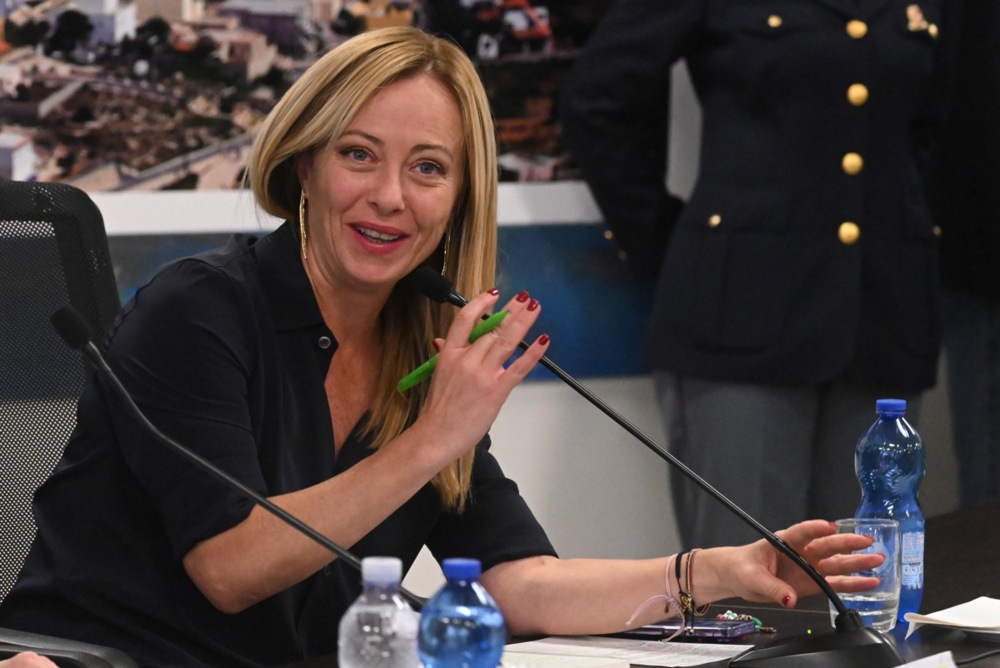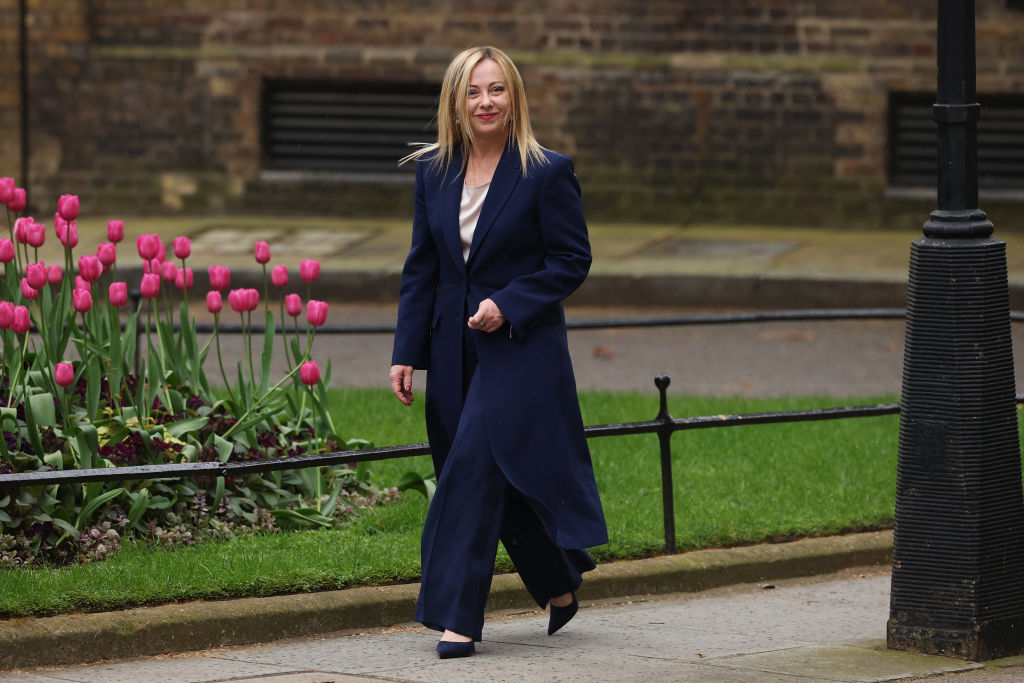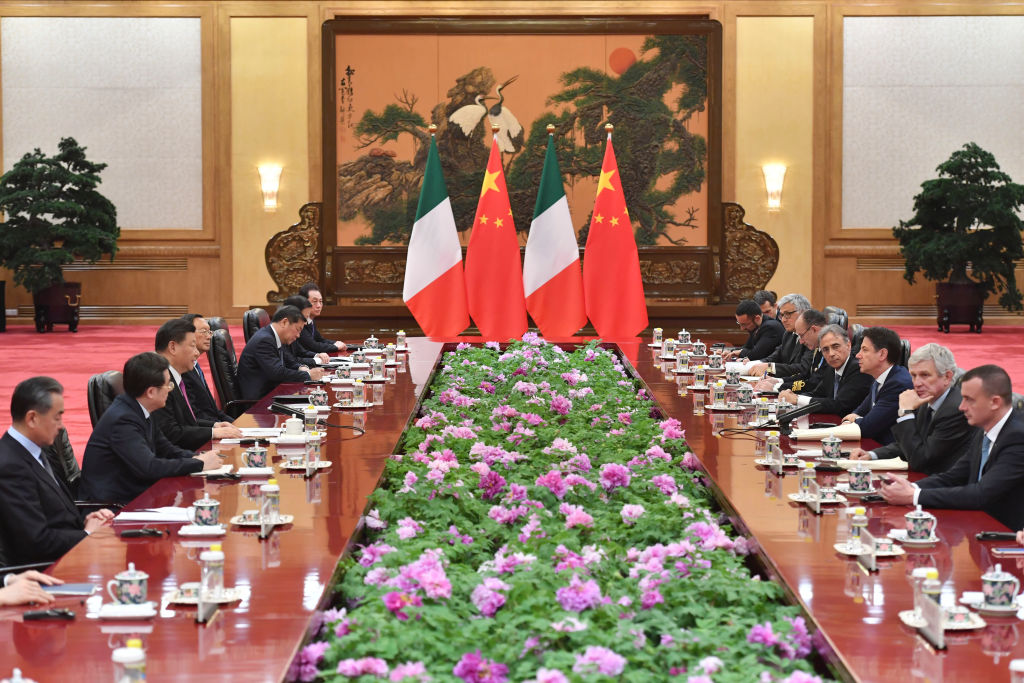Agreements between national oil companies rarely change the world. Yet, the signing of an obscure deal in Rome earlier this year could signal an important geo-economic shift in the European Union’s approach to Africa.
Often painted as a Right-wing firebrand in international media and even labeled as a fascist, Meloni in power has ruled from the moderate center. Thus far, Italy’s first female prime minister has proved to be one of the most confident in the post since the Count of Cavour first took up the post in 1861.
“Eni and Sonangol will jointly identify and assess opportunities in the areas of energy transition, including agro-industrial supply chains for the production of low carbon fuels, valorisation of residual biomass and green ammonia for agro-industrial applications,” read a joint statement following the agreement, which was signed as Meloni and Angola’s President Lourenço looked on.
Next month, the Italian government is set to reveal a new “Mattei Plan” as part of a broader European Marshall Plan. The plan is set to support agro-industry, renewable energy, employment, cultural heritage, and good governance in Africa.
The plan is named after Enrico Mattei, the former Italian Energy Minister and founder of oil major Eni. He took off in the ex-military Morane-Saulnier MS.760 Paris plane one sunny day in Sicily in 1962 and was never seen again.
Until his untimely death, Mattei was a man on a mission. Had it been successful, it would have transformed the relationship between Europe and Africa during the height of the Cold War.
Meloni is seizing on a time of crisis to find opportunity. At a time when France – the European continental power most closely associated with Africa – is perceived to be waning, Italy is on the march.
Further massive economic development in Africa is important to help stem the tide of illegal immigrants to Southern Europe and the growing realization that investment, not aid, will ameliorate the suffering driving such immigration.
In some places, Meloni has followed closely in Mattei’s footsteps. In January, she chose Algeria as her first bilateral visit abroad, where in the company of the CEO of Eni, a pipeline deal was signed that could provide hydrogen to Europe. In the context of divided Libya, she has met with both the internationally recognized Prime Minister Abdul Hamid Dbeibeh and warlord Khalifa Haftar. A visit to Libya to meet the former resulted in the signing of an 8 billion dollar deal between Eni and Libya’s National Oil Corporation.
While hydrocarbon deals may be capturing the headlines, Meloni correctly argued that green hydrogen is the fuel of the future. Hydrogen is at the heart of the proposed “SoutH2 Corridor” pipeline, which will ship hydrogen from Italy to Austria and Germany. Algeria is one possible source of that hydrogen, but Meloni’s government has begun to look more widely as well.
Green refers not to its color but to the fact that it is generated from renewables and is potentially a great form of energy storage. Green hydrogen’s rapid rise has been somewhat obscured by the COVID-19 Pandemic. Only ten countries had a national green hydrogen strategy as of December 2019.
Conversely, as of May 2023, some 50 countries have developed such strategies, with 42 more actively preparing theirs. A number of African states have vast potential. As much as Meloni’s large-scale deals in Africa make sense from a geographic perspective, the majority of such hydrogen projects are in other regions of Africa.
Which is why Sonagol is moving forward with plans to become the first African company to have such a capability. Sonogol has opened a research centre to explore opportunities in green hydrogen and other technologies. Both Angola and Ethiopia (the site of a high-profile visit from Giorgia Meloni) announced this month at the first-ever Africa Climate Week their plan to join the African Green Hydrogen alliance which includes Egypt, Kenya, Mauritania, Morocco, Namibia, and South Africa.
It’s estimated that hydrogen could make up one-quarter of Italy’s energy mix by 2050. Italy, because of its location and the fact it is the fourth-largest industrial base in Europe, could play a leading role in Europe’s hydrogen future. A recent EU study has questioned if producing green hydrogen in Germany will ever be viable.
To be sure, there are still plenty of hydrocarbon deals to be signed in Africa of the kind that Mattei would be familiar with. Yet, it appears Meloni’s Italy will become an important energy bridge between Europe and Africa in the near future.





What Giorgia Meloni can teach Europe’s Right – despite what the mainstream media tells you